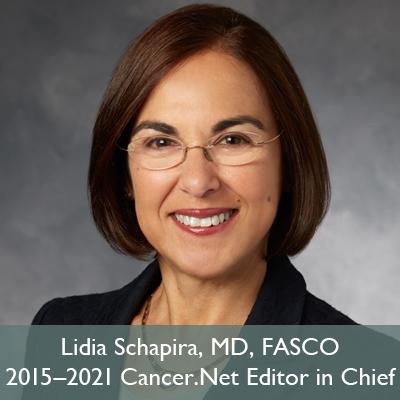
I’m often surprised by the creativity and “can do” attitude that young adults use to solve the difficult problems related to cancer and its treatment. It’s never easy to hear “you have cancer,” and it’s even harder to hear it when a diagnosis comes when you are supposed to be enjoying the benefits of youth and good health. For some young adults, living through a serious illness becomes a source of pride. Meanwhile, others prefer to leave it behind and not look back.
It’s easy to say that young adults are full of energy and creativity, but they also face numerous challenges, including the cost of care and issues with fertility. That’s why having a National Young Adult Cancer Awareness Week is so important. Let’s recognize some other aspects of cancer that young adults encounter:
-
Fast decisions, long-term consequences. An important consideration for young adults diagnosed with cancer is the speed with which treatment decisions often have to be made. Young patients are often diagnosed after they go see a doctor about a symptom that turns out to be cancer. After that, they may have to make important decisions about their treatment within a few days or weeks. While those decisions may help save their lives, they also come with long-term side effects that sometimes were not anticipated. Young adults often feel like they are not in physical control of their bodies during and after treatment. Nancy,* a young lymphoma survivor, once told me that she felt like she was “living in someone else’s body.”
-
Finding the “right” kind of support. Support groups, especially those that include other young adults, can be helpful and provide useful tips. But young adults also want new ways to give and receive support. Elsie* was in her early 30s and a successful professional when she was diagnosed with early-stage breast cancer. Traditional support groups didn’t appeal to her, but then she discovered an outdoor leadership program that specialized in facing physical challenges. She found camaraderie and support through shared activities like kayaking and climbing with other young cancer survivors. Social media is also a great source for new ways to find support, not only for patients but also caregivers as they work together to establish a “new normal.”
-
Lifelong follow-up care. The new normal includes lifestyle changes and a commitment to keeping up with medical checkups after treatment ends. This is crucial in order to identify and treat late effects, detect a possible recurrence, or find a new cancer early. Medications that have saved a life may also increase the risk of developing new and chronic diseases, such as cardiovascular disease or diabetes. Young adult survivors have many years ahead of them, so it is perhaps even more important for them to adopt healthy lifestyles, with plenty of exercise and a well-balanced, nutritious diet.
“What’s next?”
Surviving cancer exacts a physical and emotional toll on entire families, but it also gives them opportunities to affirm their deep commitment to each another. What impresses me so often is how many young adults turn their survivorship into a passion. Young adult survivors often use their experience to become cancer advocates, raising funds to support patients or increasing awareness about cancer. For example, Beth* and her family write news articles to raise awareness of leukemia and the need for bone marrow donations in their hometown. Others have organized community-wide fundraisers to support cancer research. Some find the experience of having a sibling or dear friend survive cancer deeply affects their own career choices. A colleague’s son is now training to be an oncologist after he donated bone marrow to his sister, who is a survivor of childhood leukemia.
Not all survivors have to become advocates. Many young survivors just need to move on and leave cancer behind them. Facing the future with confidence and looking forward to a normal life is a huge accomplishment.
Young adult cancer survivors have so much to teach all of us whose lives are affected by cancer. We need to hear their stories and celebrate their spirit, boldness, and resilience.  That’s part of why it’s so important to have a National Young Adult Cancer Awareness Week to build awareness of young adult cancer.
That’s part of why it’s so important to have a National Young Adult Cancer Awareness Week to build awareness of young adult cancer.
*Names have been changed to protect patient privacy.
